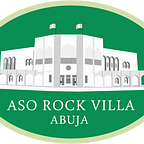What You Need To Know About The new Development Bank of Nigeria (DBN)
Issued by the Federal Ministry of Finance, Abuja.
1. What is the Development Bank of Nigeria?
The Development Bank of Nigeria (DBN) is a wholesale financial institution which aims to increase access to finance for Micro, Small and Medium Enterprises (MSMEs) through eligible financial intermediaries (“participating financial institutions”).
2. Which financial institutions will work with DBN as participating financial institutions?
Banks and financial institutions that meet up with a full set of eligibility requirements will be qualified to receive funds from the DBN.
3. How much funding will the DBN have and what are the funding sources?
The DBN will have access to US$1.3bn (N396.5 billion), which will be provided by the World Bank (WB), KfW (German Development Bank), the African Development Bank (AfDB) and the Agence Française de Development (French Development Agency).
Additionally, the DBN is currently finalising agreements with the European Investment Bank (EIB).
4. Are we starting a new Development Bank?
No, we are not starting a new development bank.
The DBN, was conceived in 2014 however, its take-off had been fraught with delays. The President Muhammadu Buhari led administration inherited the project with a determination to resolve all outstanding issues and set a target of 2017 for its take-off.
5. Will the DBN affect other existing establishments such as Bank of Industry (BOI) and Bank of Agriculture (BOA) negatively?
No, the operations of the DBN will not in any way, result in the elimination of the Bank of Industry (BOI), Bank of Agriculture (BOA) or any other existing development bank.
The operations of the DBN is distinct from other development banks as it is focused on supporting small businesses defined by size and not by sectors.
The DBN will provide loans to all sectors of the economy including, manufacturing, services and other industries not currently served by existing development banks thereby filling an important financing gap.
6. So why the DBN?
The main focus of the DBN is MSMEs.
As a wholesale bank, the DBN will lend wholesale to Microfinance Banks which will on-lend medium to long-term loans to MSMEs.
MSMEs contribute 48.47 percent to the Gross Domestic Products (GDP) of Nigeria but have access to only about 5 percent of lending from Deposit Money Banks (DMBs).
7. Is there going to be a positive impact of the DBN on the economy?
Yes.
The influx of additional capital from the DBN will lower borrowing rates and the longer tenure of the loans, will provide the required flexibility in the management of cash flows, giving businesses the opportunity to make capital improvements and acquire equipment or supplies.
As the economy diversifies, the growth of the MSME sector will have a positive impact on the economy through employment generation, wealth creation and economic growth
8. Who will operate and oversee the DBN?
To ensure the sustainability of the DBN and the security of its mandate, international best-practice was used in establishing the Bank, and will also be used in its continued operations:
§ The DBN will adhere to strong corporate governance standards; and
§ The management and board will be professionals who are independent and highly qualified.
9. When is the license expected to be issued?
We have completed and submitted all documentation required for the issuance of the license to the Central Bank of Nigeria (CBN).
